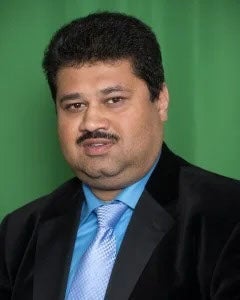Biography
Clinical Expertise:
Cardiovascular and Pulmonary Physical Therapy & Medically-complex Acute Care & Management of individuals with acute healthcare needs
Research/Scholarly Interests:
- Knowledge translation and integration to inform the practice of acute care physical therapy.
- Innovative practice models of physical therapy as a hospitalist service
- Diagnostics and triage of the medically complex patient
- Controlling healthcare costs by implementing outcomes & evidence in clinical acute care practice.
My specialty can be summarized as being a hospitalist; one who practices “integrative medicine” in the context of physical rehabilitation. Successful management of a patient requires astute understanding of the intricate interdependency of the body systems. When I incorporate all the aspects of history, labs, social contexts, work, life, and evolution of the pathophysiology of symptoms into the context of a single patient, it invigorates me to see a student’s face light up with excitement. There is a certain sense of achievement to observe students when they finally understand the importance of how diverse tests and conditions transcend from being just “red flags”, to becoming key elements to the diagnosis and the implementation of patient care. Previously “gray” concepts begin to have meaning and integrating the generalities allows the “jigsaw puzzle” of symptoms and disease to click into a full picture. I prefer case‐based learning & the Socratic Method as a hallmark of my teaching style. I have found this style of learning to work well where students build confidence in discussion-based learning, often by leading the discussion process. I also integrate this teaching-learning style in my clinical education where I borrow concepts from the well-established medical model of residency education. By grouping clinical students into teams of first, second, and third years, I experiment successfully with models where senior students mentor their juniors before seeking my corroboration & prior to implementation of plan.
Teaching for me is a give & take relationship. I will do my best to make concepts as clear as feasible to a student. I will travel the extra mile to make sure the information I offer is as evidence-backed as the fundamental pathology permits. I prefer, even insist, that students counter-check all assertions, views, and facts prior to assimilating that into their own conceptual framework. Students have to do their part in being active member of the learning team. They have to work through trials, tribulations, & both successes & failures, to be able to come out as true professionals. There are only these two pillars holding the team up. Failure of either is not an option.

